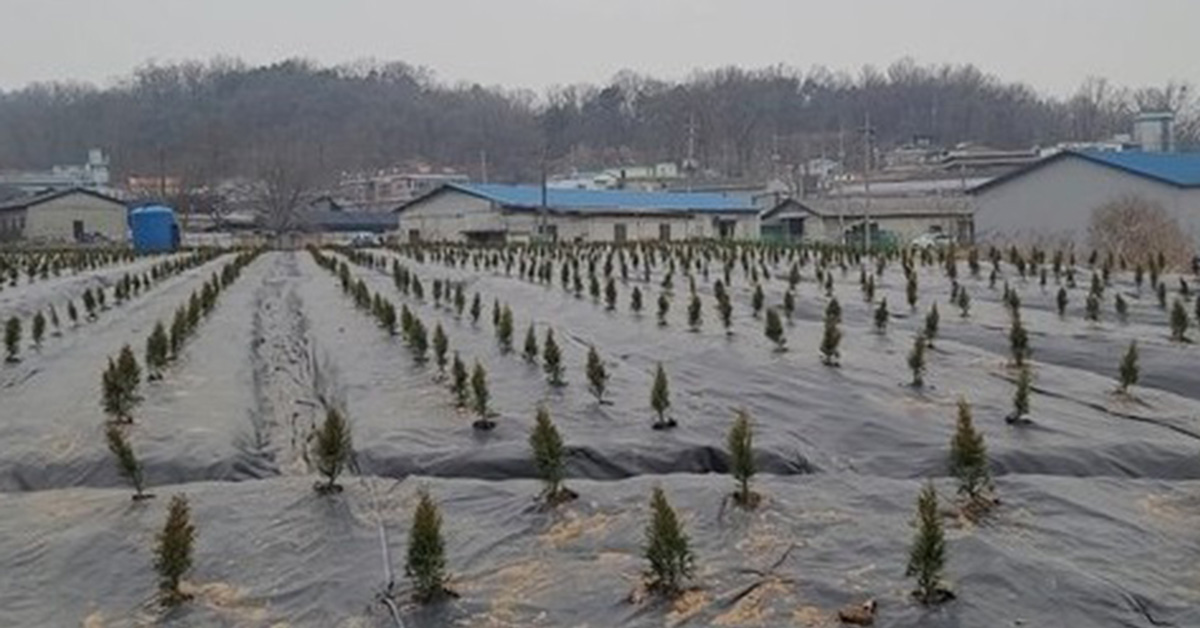
On the afternoon of the afternoon of the 17th, Choi Chang-won, head of the government joint investigation team (the first deputy head of the Office of Government Affairs Coordination), is giving a briefing on the investigation of allegations of speculation in the third new city of Korea Land and Housing Corporation (LH) employees at the joint briefing room of the government office in Seoul, Jongno-gu, Seoul. News 1
The government issued a card such as forced disposal of land, saying that it would block unfair gains from employees of the Korea Land and Housing Corporation (LH), who are suspected of speculation in the third new city. However, there are criticisms that it is not effective because it is to be disposed of by the current generation and a grace period of 1 year and 6 months is given.
On the 17th, the government held a meeting of related ministries related to LH follow-up measures at the Seoul Government Complex, presided over by Choi Chang-won, deputy head of the State Affairs Coordination Office, and discussed ways to block unfair profits of 20 suspected LH speculation employees. At the meeting, the government formed a joint investigation team with local governments and the Korea Rural Community Corporation to investigate the land in the third new town owned by LH employees from the 18th, and then decided to implement a forced disposition procedure if a violation of the Farmland Law was found.
According to the Farmland Act, when it is confirmed that the farmland is not left without permission, illegal lease, or illegal building construction is confirmed, the competent local government may impose administrative sanctions on farmland owners of’forced disposition’. Local governments are obligated to dispose of farmland for one year, and if they do not dispose of or cultivate faithfully during that period, they issue an order to dispose of them. If it is not disposed of after 6 months, a compulsory performance fee of 20% of the publicly announced land price will be imposed every year thereafter.
The owner can postpone the disposal of farmland for a year and a half. If the price of farmland has risen a lot, there is no loss even if you pay the compulsory performance fee without disposing of it for more than a year and a half. The government described the measure as “promptly forcibly disposing of farmland”, but the law stipulates a grace period of at least one and a half years. In particular, as the government expects to begin compensation for land in the third new city from the end of this year, criticism is raised that the government’s enforcement measures are not effective.
In addition, even if an employee suspected of LH speculation is found violating the Farmland Law and is subject to mandatory disposition, the employee can sell the farmland to the current generation. This is because there is no legal regulation on the sale price of farmland. It is estimated that farmland prices for LH employees have risen considerably since the 3rd new city designation. However, an official from the Ministry of Land, Infrastructure and Transport explained, “The third new town is designated as a land transaction permission zone, so farmland can only be sold to farmers living in the local government.”

A field in Gwarim-dong, Siheung-si, Gyeonggi-do. The juniper type of seedlings are densely packed. Reporter Ham Min-jung
The government revised the LH bylaws and announced that it would apply strict compensation standards to land that has not been forcibly disposed of among the land of 20 employees. LH employees’ land was not compensated for large land (compensating for land instead of cash) and for residential land, which was negotiated transfer (compensated for the right to buy land at a lower price than the market price). Instead, they decided to pay only in cash. According to the real estate industry, cash compensation is usually determined at the level of 1.5 times the published land price. However, owners who purchase land from LH employees are not subject to these restrictions.
In addition, it was decided not to include abnormal plantings on the land as compensation. An official from the Ministry of Land, Infrastructure and Transport explained that “an behavior such as planting trees too densely is abnormal planting.” The land of LH employees was densely planted with willow and juniper trees, which seem to be in order to receive a lot of compensation.
Reporter Yoon Seong-min [email protected]
![]()
